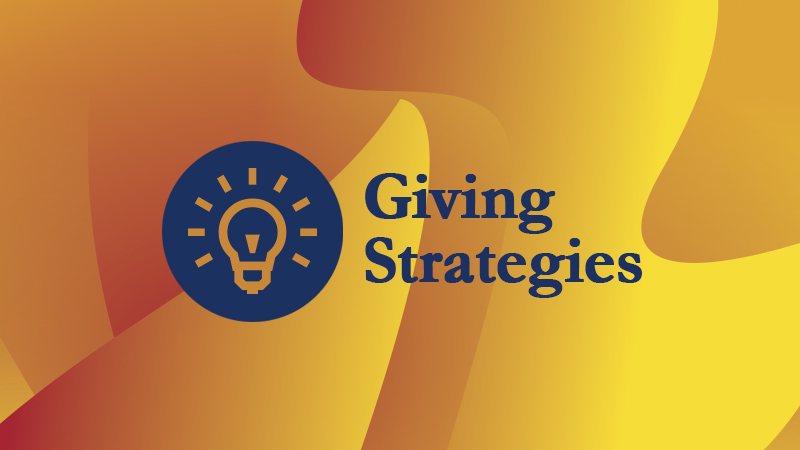Key Considerations for Year-End Tax Planning in 2021

For most donors, deploying end-of-year charitable giving strategies that are based on the presumption that the tax rates are not likely to change materially in the coming year continues to make good sense.
· Use appreciated assets to make a charitable gift in 2021. As in previous years, gifts of appreciated assets (stock) remain a best practice. With the strong bull market likely to continue and the proposed retroactive increase in the capital gains tax rates, charitable donations of appreciated property are more valuable than ever, providing not only a possible deduction to the donor but also the potential to avoid the higher capital gains tax.
· Consider donating to a Donor-Advised Fund (DAF) this year for maximum flexibility. 2021 is an excellent year to take advantage of the flexibility provided by a DAF. Consider “bunching” multiple years worth of charitable gifts into one year into the DAF to get over the standard deduction and thereby provide an opportunity to itemize. Tax rates will likely not change in 2022, so the sooner donors capture the dollar value of the tax deduction, the better. Donate appreciated property in order to escape capital gains taxation forever. The Jewish Federation of Cincinnati has offered Donor-Advised Funds for over 35 years and is happy to assist.
· Charitable donations of cash may be useful if offsetting a large portion of taxable income. 2021 might be the last year you can use a charitable donation of cash to offset more than 60 percent of your adjusted gross income. For taxpayers who are in a position to make a significant charitable gift, this may provide an opportunity. Note that contributions in excess of 60 percent of adjusted gross income cannot be made to a DAF, so careful planning must be used when deducting DAF and non-DAF gifts.
· Look into a Qualified Charitable Distribution (QCD) from an IRA. A QCD is an attractive option because it can satisfy the annual Required Minimum Distribution (RMD) from an IRA for those over 72 without incurring income tax. For those who do not itemize deductions (over 90% of donors), this is an easy way to make a “tax-free” charitable contribution.
As with any significant tax and charitable planning, it is always advisable to carefully consider potential changes in the context of your complete financial profile.
Disclaimer: The Jewish Federation of Cincinnati does not provide tax advice. Please consult with your professional advisor before taking any action.
For more information about opening a Jewish Federation Donor-Advised Fund, contact Mindy Garvey at mgarvey@jfedcin.org or click here to learn more.
Thanks for caring about our community and what we do.
Stay connected: sign up for our newsletter here.
more tips from our experts

Giving Strategies: A Donor-Advised Fund is a Win-Win – Maximize Your Impact AND Minimize Your Tax Burden
learn more
Deb’s April Tip: You Can’t Take It With You—5 Reasons to Include Your Favorite Organizations in Your Legacy Gift
learn more

